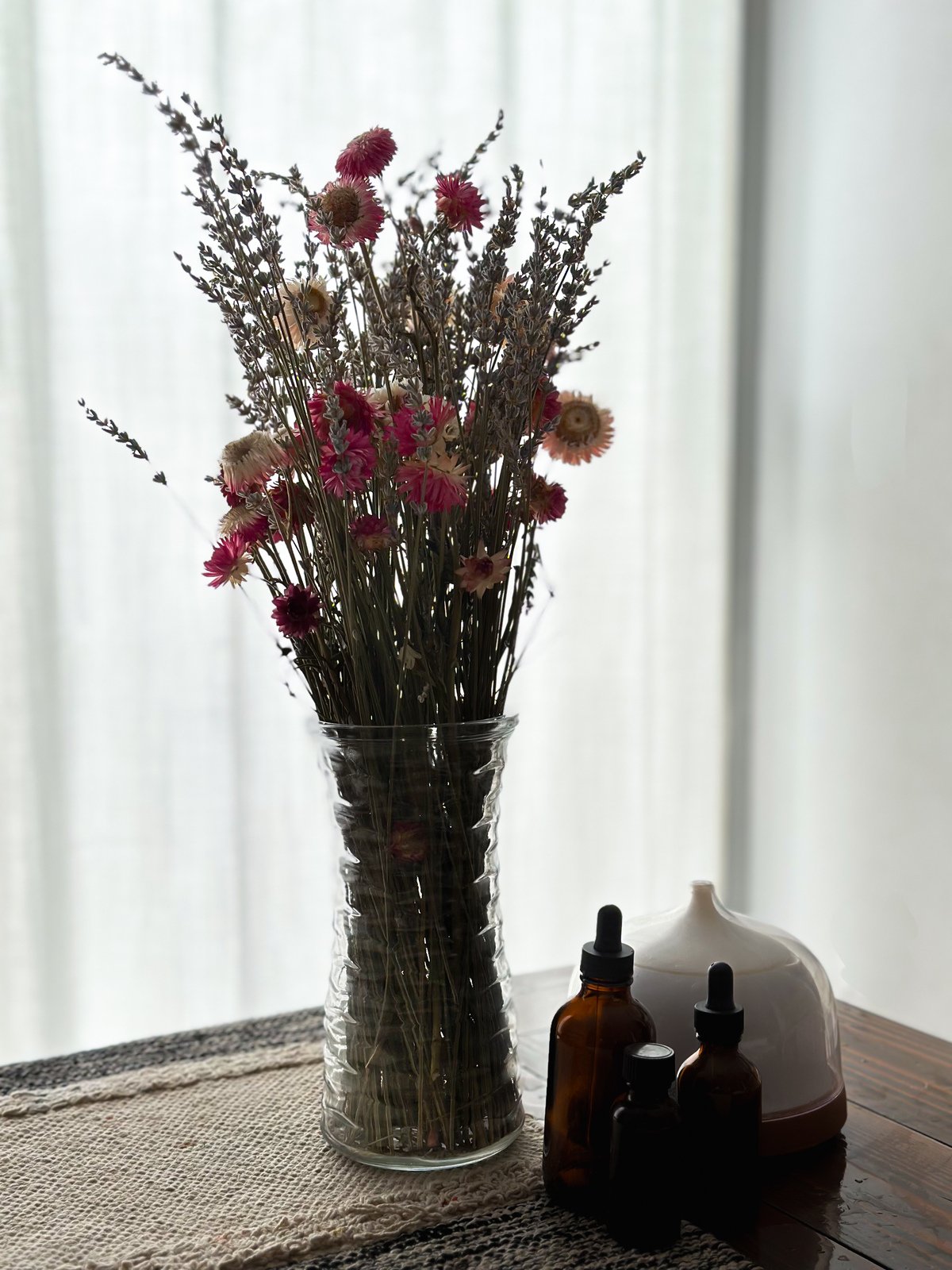Safety First: Essential Oil Tips for Parents
The world of essential oils is filled with enticing fragrances and promises of wellness. However, when it comes to using essential oils around babies, caution and informed decision-making are crucial. Babies are fragile, and their developing systems can be sensitive to the potent compounds found in essential oils. We'll explore the critical aspects of essential oil safety for babies, allowing you to make informed choices that prioritize your little one's well-being.
Understanding Essential Oils:
Essential oils are highly concentrated plant extracts obtained through distillation or cold-pressing. They contain the volatile aromatic compounds of the plants from which they are derived. These oils have many uses, from aromatherapy to skincare and natural remedies.
Why Babies Require Special Consideration:
Babies' unique needs and vulnerabilities make them more sensitive to essential oils. Here are some reasons why special care is necessary:
Underdeveloped Systems: A baby's organs, including the liver and kidneys, are still developing. This means they may have difficulty processing and eliminating certain essential oil compounds and are susceptible to toxicity.
Skin Sensitivity: A baby's skin is thinner and more permeable than an adult's, making it more susceptible to irritation from essential oils.
Respiratory Sensitivity: Babies have delicate respiratory systems, and inhaling certain essential oils can be harsh on their lungs.
Essential Oil Safety Guidelines for Babies:
Consult a Pediatrician: Before using any essential oils on or around your baby, consult with a pediatrician who is knowledgeable about essential oil safety. This is especially crucial if your baby has any underlying health conditions.
Age Matters: Essential oils are generally not recommended for babies under three months old. Even after this age, it's essential to use extreme caution and dilute oils properly.
Dilution: Always dilute essential oils with a carrier oil when using them around babies. A standard dilution ratio is 0.25% to 0.5% essential oil to carrier oil. Be sure to use a gentle carrier oil like almond, coconut, or jojoba. Never add oils directly to bathwater; oil and water don’t mix, and splashing can get it into the baby’s eyes.
Avoid Topical Application: Essential oils should not be applied to the skin of newborns and young infants, as their skin is exceptionally sensitive. If you’re applying essential oils to yourself, make sure they’ve had time to be absorbed into your skin before picking up your baby, about 15 minutes.
Use Safe Oils: If you choose to use essential oils, stick to mild, baby-safe ones. For instance, sweet orange and chamomile are often considered safe options. Lavender is also typically considered a safe option; however, regular topical use has been shown to affect the hormones of prepubescent boys. Citrus oils can cause photosensitivity and burns when applied topically and exposed to the sun. Everyone should use caution with this!
Make sure the oils you buy are from a reputable source and are pure, not synthetic. The label should say the plant's common and Latin name, the part of the plant used, and the extraction method.
Avoid Ingestion: Never give essential oils internally to babies. This can be extremely dangerous and is never recommended.
Proper Diffusion: Avoid diffusing around babies six months and under. Diffusing is a method of dispersing essential oils into the air, usually through a device called a diffuser. When introducing essential oils to the baby's environment, use a high-quality diffuser in a well-ventilated room for no longer than an hour at a time. Ensure the diffuser is placed out of the baby's reach.
Watch for Allergies: When introducing a new essential oil, look for signs of allergic reactions such as redness, rash, itching, or swelling. If you notice any of these symptoms or any other adverse reactions, discontinue use immediately.
Store Safely: Essential oils should always be stored out of reach of children, including older siblings, who might try to access them.
Essential Oils to Approach with Caution:
Some essential oils are more likely to cause problems for babies. Avoid peppermint (until age 6), rosemary, eucalyptus (until age 10), and wintergreen oils around babies. These oils contain compounds that can be harsh on a child’s respiratory system, potentially causing breathing difficulties or irritation.
Conclusion: Safety First
Essential oils can offer a range of benefits when used mindfully and safely. However, when it comes to babies, their unique vulnerabilities require extra caution. Always start with the gentlest oils and carefully observe your baby's reactions. Your baby's reactions are the best indicator of whether an essential oil is suitable for them. With proper care and knowledge, you can safely incorporate essential oils into your baby's environment while promoting their health and well-being.



